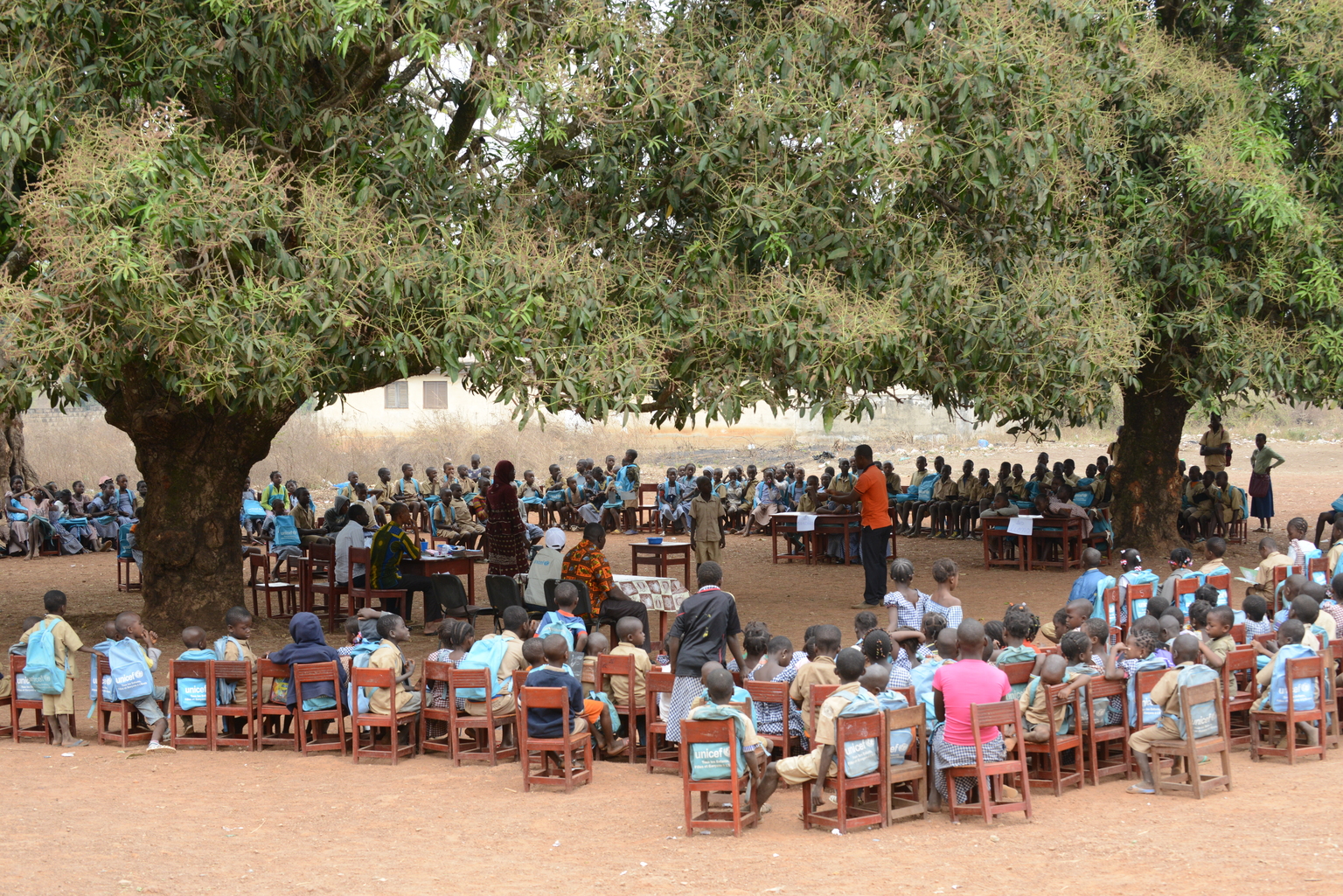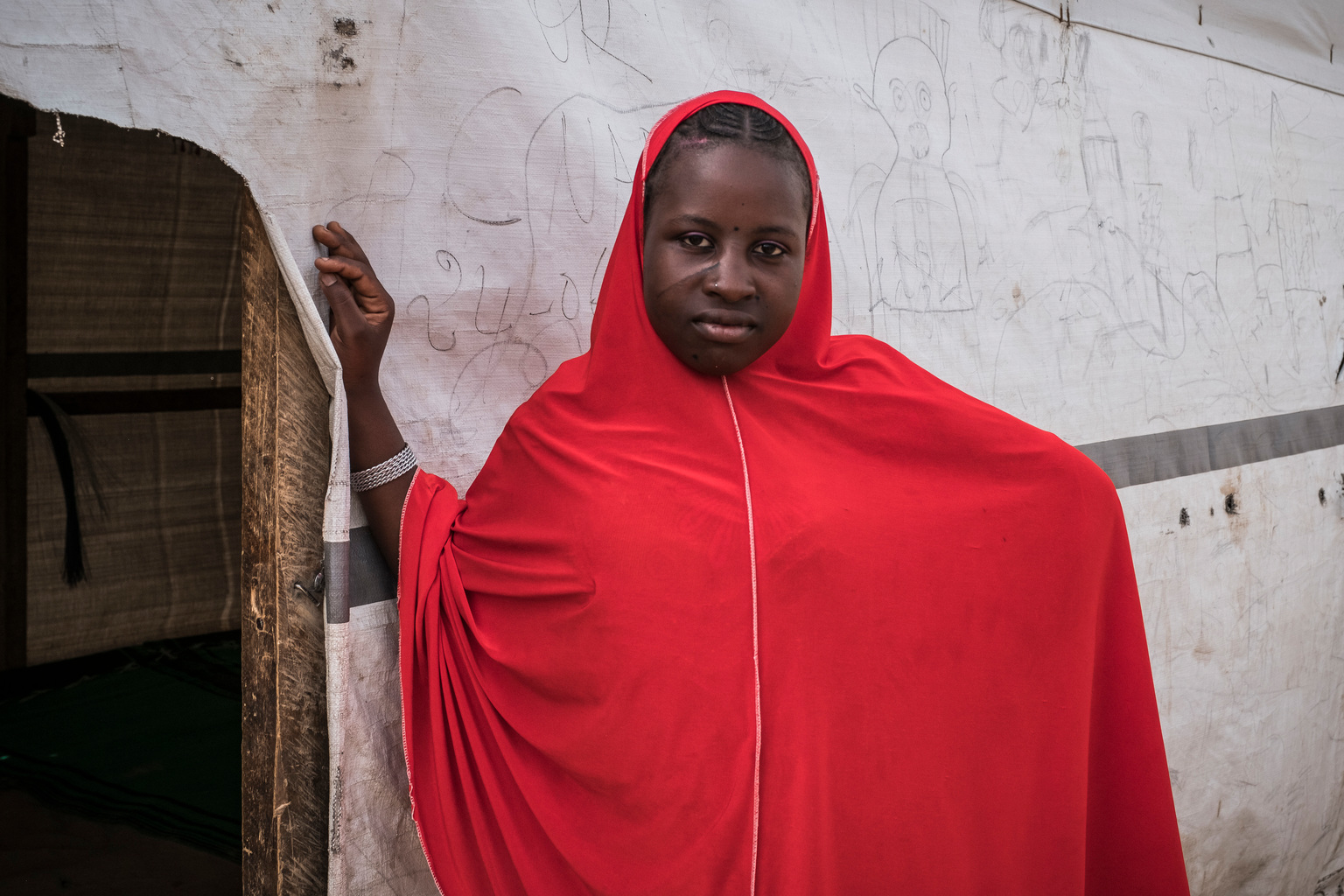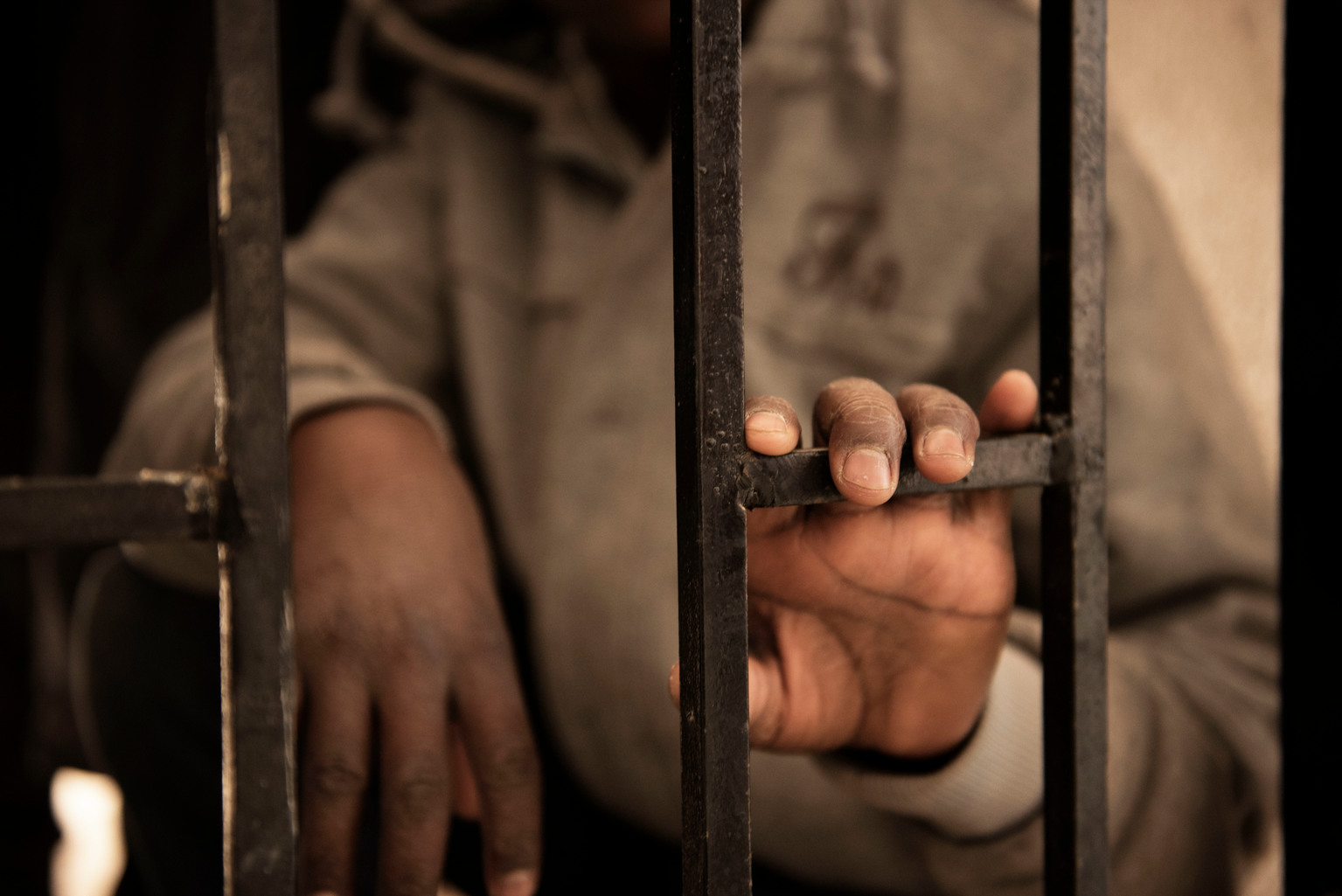In search of opportunities
2017-07-31
© UNICEF/UN05325/Dragaj
The vast majority of child migrants uprooted by violence, poverty and climate change remain in Africa.
Children account for over half of the 12 million West and Central African people on the move each year, with some 75% of them remaining in sub-Saharan Africa, and less than one in five heading to Europe. Migration involving children and young people is likely to increase due to rapid population growth and urbanization, climate change, inequitable economic development and persistent conflict.

© UNICEF/UNI82205/Holt
Sub-Saharan Africa will be hit hardest by climate change, with scientists predicting a 3–4 degree rise in temperature, higher than global forecasts. Longer droughts and intense storms will make farming and herding more difficult and people will be forced to seek a better life. A dust storm in Chad in 2010.

© UNICEF/UN037727/Bindra
Urbanization is a driver of migration in West and Central Africa. Better paying jobs — not dependent on crops or rainfall — entice many to leave their homes and seek success in the cities. The exposure to new ideas and cultures can drive a secondary wave towards Europe. Congestion in Nigeria in 2016.

© UNICEF/UN016963/Dejongh
Population growth is set to double in the region by 2050, depleting the environmental resources and straining limited infrastructure in education and health care, and causing increased competition for already limited resources. A school reading club in the Ivory Coast in 2016.

© UNICEF Cameroon/2017/Catton
Elizabeth, 13, fled conflict in the Central African Republic two years ago. Separated from her family on the journey, she found refuge with a host family, but at a price — she was promised in marriage to a man she doesn’t know.
“I know that education is the only way for me to achieve my dreams,” she said.

©UNICEF WCARO/2017/Rose
[NAME CHANGED] Anne Marie, 12, in the single room she shares with her mother and sister after they fled to Senegal. Her family lost everything when their house was burned down in conflict in the Central African Republic in 2011. Stuck without papers for years, it’s a struggle to provide both education and enough to eat.

© UNICEF/UN063974/Dejongh
Vulnerable children like Chris, 9, remind us of how hard it can be to move countries. Many migrants are marginalised without access to services like healthcare and education. He and his mother live under a tarp in the Ivory Coast that floods when it rains and fills with mosquitos when it doesn’t.

© UNICEF/UN029232/Phelps
Six year old Mahazouna’s father left her village in Niger more than 5 years ago to find work in Libya. Mahazouna’s mother made a dangerous desert crossing to try make money in Algeria, but was sent back to Niger. Financial pressure has led to Mahazouna’s older sisters leaving school to marry early.

© UNICEF Gabon/Dicko/2016
Helene, 14, holds a sign saying “I am a child, and not a commodity.” Her family in Benin were eager to help her find a better future and fell prey to the lies told by traffickers.
“I never went to school in Gabon,” said Helene. “I was beaten and sick and I never got medical help or enough food to eat.”

© UNICEF/UN060345/Sokhin
Nigerian refugee Hafsa Oumar, 16, stands outside a classroom at a school in the Daresalam refugee camp. Before coming to Chad, Hafsa never had a chance to attend school. She enrolled for the first time when she arrived in 2015, but stopped attending after marrying in Feuary 2017.

© UNICEF WCARO/ 2017/Rose
In 2017, a bus station in Mali displays a bewildering list of distant cities on the way to Libya. Navigating the complex network of transport can be daunting for those who’ve never left their village. Smugglers offer to help arrange safe houses along the route, but stories of betrayal are common.

© UNICEF WCARO/2017/Delvigne-Jean
“You see people being shot, beaten, and tortured,” says Mustapha reached Libya before coming back home to the Gambia. “I never heard the sound of a gun until I reached Libya, and it was every day there, morning, and night.”
Mustapha set up an organization to help other migrants who’ve returned home.

© UNICEF/UN052682/Romenzi
“I left Niger two and a half years ago,” says Issaa, 14, in a detention centre in Libya in 2017. “My father collected money for my journey, he wished me good luck and then let me go.”
Working for less than $US30 per month, Issaa set aside money to pay for a crossing by boat to Italy before he was detained.

© UNICEF Mauritania/2017/Alvarez
Yusuf, 4, dreams of returning to the family’s native Guinea. His father Baboucar left for Spain but ran out of money in Mauritania and had to start working as a builder to make ends meet. Six years later, he’s given up on the idea of Europe and just wants to return home with his family.

© UNICEF Central African Republic/2017/Luthi
Already married and a mother at 16, Cira’s husband left Mali to find work in Equatorial Guinea. Though she’s not heard from him in a long time, he sends money home. But it’s still a hard life for her — cooking, cleaning, collecting firewood, and working in a nearby goldfield.

© UNICEF/UN034820/Schermucker
Awa and her daughter Nantene in Mali in 2016. Until the root causes of poverty are addressed, and solutions provided in the form of economic opportunities, access to health care and access to quality education, people are likely to continue to take dangerous risks migrating for better opportunities.









